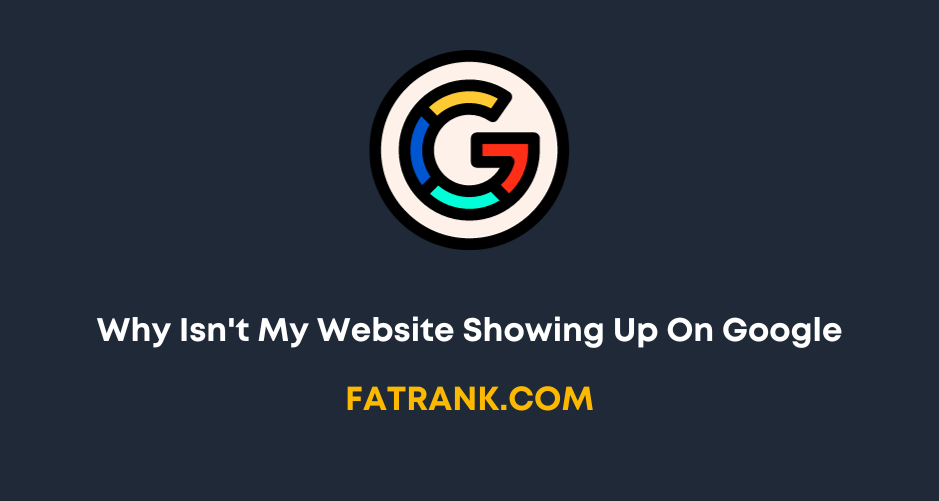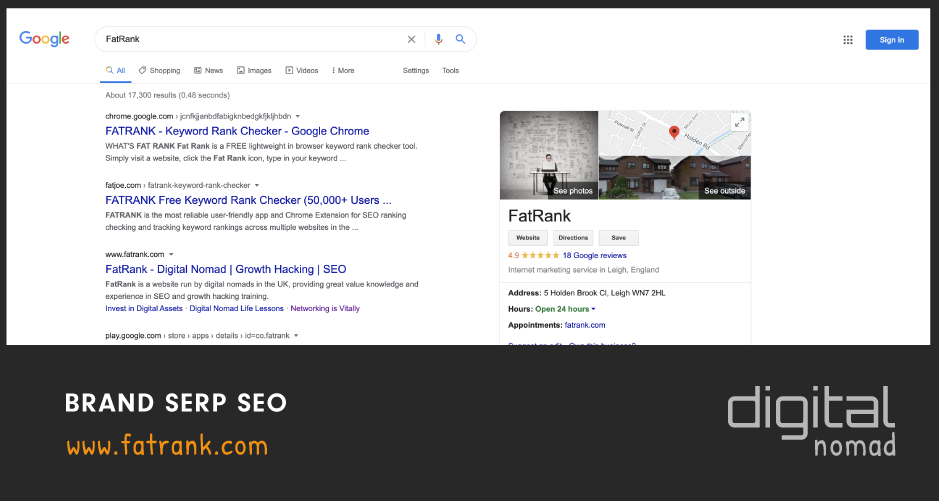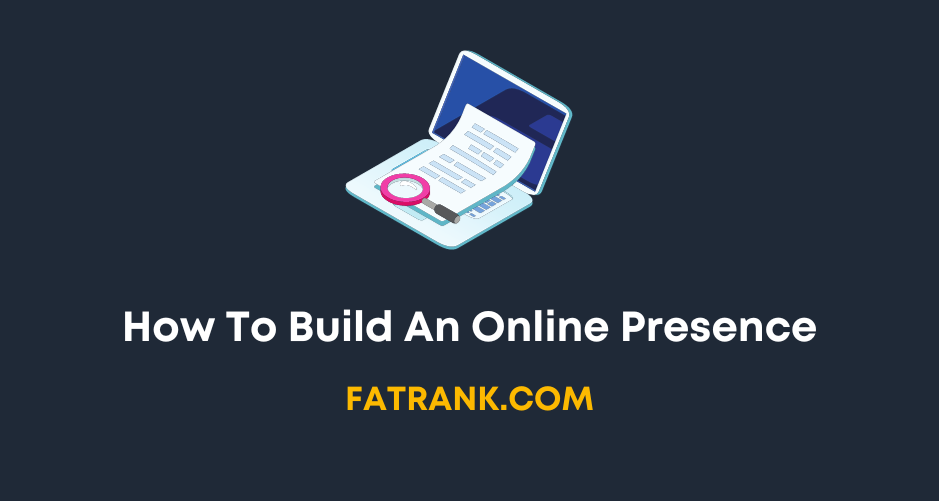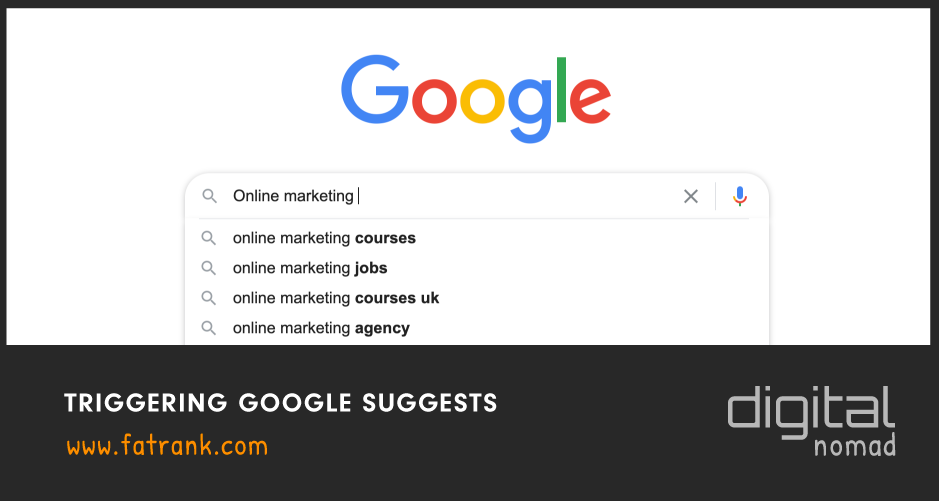
Why Isn’t My Website Showing Up On Google
Are you struggling to get your website to show up on Google? Understanding how Google works and why it’s important for your website to rank on this popular search engine is crucial for online visibility and success. In this article, we’ll delve into why websites don’t appear on Google, including lack of quality content, poor website design and user experience, technical issues, and not following SEO best practices. But fear not! We’ll also provide actionable steps to improve your website’s visibility on Google, such as conducting keyword research, optimizing your on-page elements, creating high-quality content, and building backlinks. So, if you’re ready to enhance your website’s presence on Google and attract more organic traffic, let’s dive into the strategies that will help you achieve that.
Contents
- What is Google and How Does it Work?
- Why is it Important for Websites to Show Up on Google?
- Common Reasons Why Websites Don’t Show Up on Google
- How Do You Improve Your Website’s Visibility On Google?
- Conclusion
- Additional Resources for Improving Your Website’s Visibility on Google
- Frequently Asked Questions
- Why isn’t my website showing up on Google?
- What can I do to get my website to show up on Google?
- My website used to appear on Google, but now it’s disappeared. What happened?
- How long does a new website take to appear on Google?
- Why is my website ranking low on Google?
- Can I pay to have my website show up on Google?
- Related To Why Isn’t My Website Showing Up On Google Topics
What is Google and How Does it Work?
Google, the world’s most popular search engine, constantly crawls and indexes web pages to provide relevant search results to users.
Upon crawling a web page, Google’s bots analyze the content and follow internal and external links to other pages, ensuring comprehensive web coverage. The indexed pages are then stored in Google’s massive database, allowing for efficient retrieval when users perform searches.
Google uses a complex algorithm to determine the ranking of web pages, considering various factors such as keywords, backlinks, and user experience. Webmasters can utilize Google Search Console to monitor their site’s indexing status, identify issues, and optimize for SEO to improve visibility in Google’s search results.
Why is it Important for Websites to Show Up on Google?
Websites must appear on Google to gain visibility, establish authority, and attract organic traffic, ultimately affecting their URL and Domain Ratings while enhancing their user experience and SEO performance.
This visibility plays a crucial role in building trust among users establishing the website as a reliable source of information or products. Higher visibility also leads to increased click-through rates, improving organic search rankings through user engagement. Visibility on Google enhances brand recognition and allows websites to reach a wider audience, potentially converting visitors into loyal customers.
Common Reasons Why Websites Don’t Show Up on Google
Websites may fail to appear on Google due to penalties, improper meta tags or robots.txt configurations, content issues, and algorithmic limitations.
Penalties, such as manual actions, can be imposed by Google for violating its guidelines, resulting in low visibility. Incorrect robots.txt configuration can block search engine crawlers, preventing indexing. Content issues, including duplicate, thin, or irrelevant content, can also hinder visibility on Google. Certain algorithmic considerations, like changes in ranking algorithms, can impact search visibility and require continuous monitoring and adjustment.
Lack of Quality Content
A lack of high-quality and relevant content can significantly hinder a website’s visibility on Google, as content plays a crucial role in SEO and Google’s ranking algorithms.
When a website lacks high-quality and engaging content, it risks being overlooked by search engines, leading to lower organic traffic and reduced visibility. Google’s algorithm prioritizes websites with valuable and original content, making it essential for website owners to focus on creating SEO-optimized content that incorporates relevant keywords and entities.
By producing high-quality content that resonates with the target audience, website owners can enhance their chances of appearing in top search results, boosting their visibility and driving more organic traffic. Poor content quality can harm a website’s online presence, highlighting the significance of prioritizing content creation and SEO best practices.
Poor Website Design and User Experience
Inadequate website design and user experience can lead to lower visibility on Google, as user engagement and satisfaction are key factors in SEO and Google’s ranking criteria.
When users encounter a website with poor design and a frustrating user experience, they are more likely to bounce back to the search results, signaling to Google that the content did not meet their needs. This can adversely impact a website’s ranking, as Google aims to display the most relevant and user-friendly results.
A user-centric design, intuitive navigation, and fast loading times are critical to keeping visitors engaged and satisfied. Sites that prioritize user experience tend to have higher dwell times and lower bounce rates, factors that Google uses to evaluate the quality and relevance of a webpage.
Technical Issues With The Website
Technical issues such as indexing errors, crawlability issues, or misconfigurations in the Google Search Console can impede a website’s visibility on Google and impact its SEO performance.
These issues can lead to pages not being included in search results, causing a significant drop in organic traffic. Indexing errors can prevent Google from properly analyzing and ranking a website’s content. Similarly, crawlability issues can hinder search engines from accessing and indexing important pages. Misconfigurations, such as incorrect redirects or canonical tags, can confuse search engine crawlers and lead to suboptimal website visibility.
Not Following SEO Best Practices
Neglecting SEO best practices, such as backlink building, keyword optimization, and competition analysis, can have detrimental effects on a website’s visibility in search engine results pages (SERPs) and its ability to rank for relevant queries.
Without proper backlink building, a website may struggle to earn authority and trust from search engines, resulting in lower rankings. Neglecting keyword optimization can lead to missed opportunities to target valuable search terms while overlooking competition analysis can prevent the identification of potential threats and opportunities within the digital landscape.
How Do You Improve Your Website’s Visibility On Google?
Enhancing a website’s visibility on Google involves strategic measures such as keyword optimization, content refinement, mobile compatibility, speed enhancement, and the acquisition of quality inbound links.
To effectively optimize keywords, it is crucial to conduct thorough research about the relevant terms and phrases frequently searched by users. Incorporating these keywords judiciously into website content, meta tags, and image descriptions can significantly improve the site’s search engine ranking. Enhancing the quality and relevance of the website’s content is essential, as it engages visitors and appeals to search engine algorithms for indexation.
Ensuring mobile compatibility enforces the accessibility of the website across various devices, benefiting its user experience and, ultimately, its search engine ranking. Improving the website’s loading speed contributes to a better user experience and positively influences Google’s ranking algorithms.
Acquiring quality inbound links from reputable and relevant websites strengthens the website’s authority and credibility in the eyes of search engines, consequently boosting its visibility in search results.
Conduct Keyword Research
Thorough keyword research using tools like Keywords Explorer is essential for identifying relevant terms and phrases to enhance a website’s ranking and visibility on Google.
By utilizing Keywords Explorer and other SEO tools, website owners can gain valuable insights into the search habits of their target audience. This allows them to refine their content and SEO strategy to align with the keywords and entities most likely to drive organic traffic.
Comprehensive keyword research enables webmasters to identify emerging trends and capitalize on untapped opportunities in their niche, leading to improved search engine visibility and a stronger competitive edge.
Optimize Your Website’s On-Page Elements
Optimizing on-page elements such as titles, meta descriptions, and content with relevant keywords and SEO best practices, especially using tools like Yoast SEO plugin for WordPress, can significantly boost a website’s visibility on Google.
When you focus on optimizing these on-page elements, you are essentially providing search engines with clear and concise information about your website’s content. This allows search engines to understand the relevance of your site to specific queries, thus improving its ranking in search results.
The Yoast SEO plugin for WordPress, in particular, offers valuable insights and recommendations to enhance on-page SEO elements, making it a popular choice among website owners and digital marketers alike.
Create High-Quality and Relevant Content
Producing high-quality, relevant content that meets user intent and establishes authority is pivotal in improving a website’s visibility and ranking on Google’s search results pages.
Search engines value authoritative content that provides valuable insights and answers users’ queries effectively. By incorporating relevant keywords and optimizing the content structure, businesses can enhance their website’s credibility and attract organic traffic. Informative and engaging content is more likely to be shared, creating natural backlinks and further consolidating the website’s authority in its niche. Therefore, investing in the creation of compelling and authoritative content is crucial for long-term SEO success.
Build Backlinks to Your Website
Acquiring quality backlinks from authoritative sources can enhance a website’s authority, URL Rating, and Domain Rating, ultimately improving its visibility and competitive edge on Google.
When a website garner backlinks from reputable and credible websites, it signals its reliability to search engines and attracts more organic traffic. Quality inbound links serve as a vote of confidence for your content, indicating its relevance and trustworthiness to both users and search engines. As a result, the website gains higher rankings, increased organic traffic, and improved domain authority, solidifying its position in the competitive landscape of search engine results.
Conclusion
Optimizing a website’s visibility on Google is imperative for attracting organic traffic, establishing authority, and enhancing its overall SEO performance in alignment with Google’s search algorithms.
When a website ranks higher in Google search results, it gains credibility and trustworthiness among users, leading to increased click-through rates and conversions. This visibility also contributes to brand recognition and outreach to potential customers, thus playing a pivotal role in a company’s online success. A strong presence on Google yields a competitive advantage, positioning the website ahead of its rivals and fuelling continuous growth.
Additional Resources for Improving Your Website’s Visibility on Google
For further insights and tools to enhance your website’s visibility on Google, consider utilizing resources from reputable platforms such as SEMRush, Social Media Today, and Campaign Monitor.
These platforms offer a wealth of information and tools to boost your SEO efforts. Social Media Today, for instance, provides valuable articles and guides on optimizing content for search engines while keeping up with the latest social media trends. SEMRush, on the other hand, offers comprehensive keyword research, backlink analysis, and site auditing tools to refine your website’s SEO strategy. Campaign Monitor specializes in email marketing, aiding in customer engagement and retention through targeted campaigns.
Frequently Asked Questions
Why isn’t my website showing up on Google?
There could be a few reasons for this. It could be because your website is new and hasn’t been indexed by Google yet. It could also be because your website doesn’t have enough relevant content or backlinks. Additionally, your website may be penalized by Google for violating its guidelines.
What can I do to get my website to show up on Google?
First, ensure Google indexes your website by submitting a sitemap through Google Search Console. Next, focus on creating high-quality, relevant content and building backlinks from reputable websites. Avoid any black hat SEO tactics that may result in a penalty from Google.
My website used to appear on Google, but now it’s disappeared. What happened?
Your website may have been penalized by Google for violating their guidelines. This could be due to using black hat SEO tactics, having low-quality or irrelevant content, or spammy backlinks. Check Google Search Console for any notifications or manual actions that may have been taken against your website.
How long does a new website take to appear on Google?
It can take a few days to several weeks for a new website to be indexed by Google. This depends on various factors, such as the website’s content, backlinks, and technical setup. You can speed up the process by submitting a sitemap through Google Search Console.
Why is my website ranking low on Google?
Your website may rank poorly on Google due to a lack of relevant content, poor website design or user experience, or insufficient backlinks. It’s important to regularly review and improve your website’s SEO to help it rank higher on Google.
Can I pay to have my website show up on Google?
Yes, you can use Google Ads to show your website on Google’s search results page. However, this differs from organic search results and requires a budget for advertising. Additionally, improving your website’s organic SEO is still important to maintain a consistent presence on Google’s search results page.
Related To Why Isn’t My Website Showing Up On Google Topics
Here are all the topics related to Why Isn’t My Website Showing Up On Google in July 2024.
- Brand Jacking

- Brand SERP SEO

- Brand SERPs Course

- Branded Corporate Video Production Service

- EEAT SEO

- Getting Featured in Google News

- How To Build An Online Presence

- How To Market Your Business

- Link Building For Author Bio

- Link Building For Awards Won

- Newsjacking

- Online Reputation Management

- Opinion Sculpting

- Rank Jacking

- Rate My Business Review

- Reputation Management Agencies

- Reviews To Improve Your Online Reputation

- Trend Jacking

- Triggering Google Suggests

- Why is seomerch the market leader in SEO focused merchandise?

- Why Isn't My Website Showing Up On Google


About FatRank
Our aim to explain and educate from a basic level to an advanced on SEO and Social Media Marketing.
